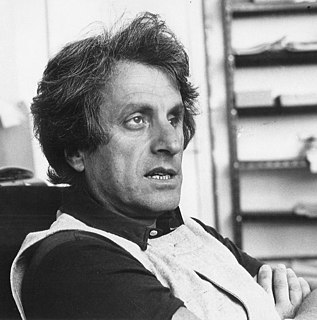A Quote by Paul Davies
Technology is, in the broadest sense, mind or intelligence or purpose blending with nature.
Quote Topics
Related Quotes
To make music means to express human intelligence by sonic means. This is intelligence in its broadest sense, which includes not only the peregrinations of pure logic but also the "logic" of emotions and intuition. My musical techniques, although often rigorous in their internal structure, leave many openings through which the most complex and mysterious factors of the intelligence may penetrate.
...[D]ivision of labor, in my mind, is one of the dangers of work-based technology. Modern IT infrastructure allows us to break projects into very small, discrete parts and assign each person to do only one of the many parts. In so doing, companies run the risk of taking away employees' sense of the big picture, purpose, and sense of completion.
Technology is neutral and sterile. Now, technology is the nature of modern man; it is our environment and our horizon. Of course, every work of man is a negation of nature, but at the same time, it is a bridge between nature and us. Technology changes nature in a more radical and decisive manner: it throws it out.
The mind always functions in an eccentric way, the mind is always an idiot. The really intelligent person has no mind. Intelligence arises out of no-mind, idiocy out of the mind. Mind is idiotic, no-mind is wise. No-mind is wisdom, intelligence. Mind depends on knowledge, on methods, on money, on experience, on this and that. Mind always needs props, it needs supports, it cannot exist on its own. On its own, it flops.
So the technology that does the least alteration of nature, the least harm to other species and systems, and provides the greatest intimacy of human with nature, is the best. We could make a scale with that in mind, and judge any technology by its place on that scale: speech and eyeglasses, say, would rank low; nuclear bombs and coal plants, high.
{While meditating} I sit quietly and rest in the nature of mind; I don't question or doubt whether I am in the "correct" state or not. There is no effort, only rich understanding, wakefulness, and unshakable certainty. When I am in the nature of mind, the ordinary mind is no longer there. There is no need to sustain or confirm a sense of being: I simply am.




































